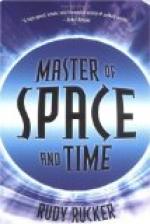William Thomson was born in Belfast, Ireland, in 1824. His father was a teacher and took an especially keen interest in the affairs of his boys because their mother had died while William was very young. When William was eight years of age his father removed to Glasgow, Scotland, where he had secured the chair of mathematics in Glasgow University. His early education he secured from his father, and this training, coupled with his natural brilliancy, enabled him to develop genuine precocity. At the age of eight he attended his father’s university lectures as a visitor, and it is reported that on one occasion he answered his father’s questions when all of the class had failed. At the age of ten he entered the university, together with his brother James, who was but two years older. The brothers displayed marked interest in science and invention, eagerly pursued their studies in these branches, and performed many electrical experiments together.
[Illustration: CYRUS W. FIELD]
[Illustration: WILLIAM THOMSON (LORD KELVIN)]
James took the degrees B.A. and M.A. in successive years. Though William also passed the examinations, he did not take the degrees, because he had decided to go to Cambridge, and it was thought best that he take all his degrees from that great school. In writing to his older brother at this time, William was accustomed to sign himself “B.A.T.A.I.A.P.,” which signified “B.A. to all intents and purposes.” After finishing their work at Glasgow the boys traveled extensively on the Continent.
At seventeen William entered St. Peter’s College, Cambridge University, taking courses in advanced mathematics and continuing to distinguish himself. He took an active part in the life of the university, making something of a record us an athlete, winning the silver sculls, and rowing on a ’varsity crew which took the measure of Oxford in the great annual boat-race. He also interested himself in literature and music, but his real passion was science. Already he had written many learned essays on mathematical electricity and was accomplishing valuable research work. On the completion of his work at Cambridge he secured a fellowship which brought him an income of a thousand dollars a year and enabled him to pursue his studies in Paris.
When he was but twenty-two years of age he was made professor of natural philosophy at the University of Glasgow. Though young, he proved entirely successful, and wan immensely popular with his students. At that time the university had no experimental laboratory, and Professor Thomson and his pupils performed their experiments in the professor’s room and in an abandoned coal-cellar, slowly developing a laboratory for themselves. His development continued until, when at the age of thirty-three he was called upon to assist with the work of laying an Atlantic cable, he was possessed of scientific attainments which made him invaluable among the cable pioneers.




